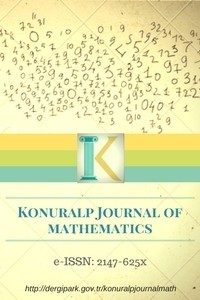On a Diophantine Equation of Type $p^x+q^y=z^3$
The exponential Diophantine equations of type px+qy=z2px+qy=z2 have been widely studied over the past decade. Authors studied these equations by considering primes pp and qq, and in general, for positive integers pp and qq. In this paper, we will be extending the study to Diophantine equations of type px+qy=z3.px+qy=z3. In particular, we will be working with Diophantine equations of type px+(p+4)y=z3,px+(p+4)y=z3, where pp and p+4p+4 are cousin primes; that is, primes that differ by four. We state some sufficient conditions for the non-existence of solutions of equation (1)(???) on the set of positive integers. The proof uses some results in the theory of rational cubic residues as well as results in quadratic reciprocity, and some elementary techniques. It will be shown also that other Diophantine equations of similar type can also be studied with the approaches used in this paper.
Keywords:
Diophantine equation, exponential Diophantine equation, Jacobi symbol quadratic reciprocity, rational cubic residues,
___
- [1] D. Acu, On a Diophantine equation 2x +5y = z2, Gen. Math. Vol:15, No.4 (2007), 145-148.
- [2] J. B. Bacani and J. F. T. Rabago, The complete set of solutions of the Diophantine equation px +qy = z2 for twin primes p and q, Int. J. Pure Appl. Math. Vol:104, No.4 (2015), 517-521.
- [3] Burton, D. M., Elementary Number Theory, Allyn and Bacon Inc. Boston, 1980.
- [4] Lemmermeyer, F., Reciprocity Laws from Euler to Eisenstein, Springer-Verlag Berlin, 2000.
- [5] J. F. T. Rabago, More on Diophantine equations of type px +qy = z2, Int. J. Math. Sci. Comp. Vol:3, No.1 (2013), 15-16.
- [6] J. F. T. Rabago, On an Open Problem by B. Sroysang, Konuralp J. Math. Vol:1, No.2 (2013), 30-32.
- [7] B. Sroysang, More on the Diophantine equation 8x +19y = z2, Int. J. Pure Appl. Math. Vol:81, No.4 (2013), 601-604.
- [8] A. Suvarnamani, A. Singta, S. Chotchaisthit, On two Diophantine Equations 4x +7y = z2 and 4x +11y = z2, Sci. Technol. RMUTT J. Vol:1 (2011), 25-28.
- Yayın Aralığı: Yılda 2 Sayı
- Başlangıç: 2013
- Yayıncı: Mehmet Zeki SARIKAYA
